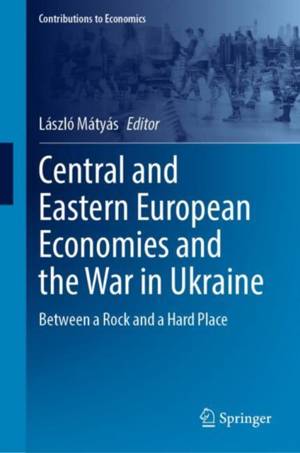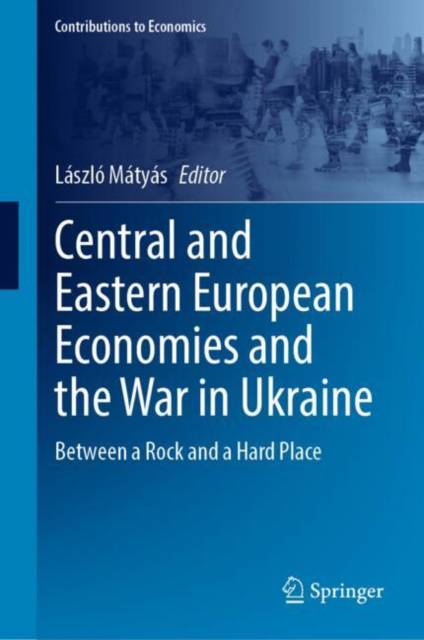
- Afhalen na 1 uur in een winkel met voorraad
- In januari gratis thuislevering in België
- Ruim aanbod met 7 miljoen producten
- Afhalen na 1 uur in een winkel met voorraad
- In januari gratis thuislevering in België
- Ruim aanbod met 7 miljoen producten
Central and Eastern European Economies and the War in Ukraine
Between a Rock and a Hard Place
Omschrijving
This book takes stock of and analyses the direct and indirect effects of the war in Ukraine, the policy response to the shock across countries, as well as the potential medium-term economic and social implications and policy challenges.
The last decade most Central and Eastern European (CEE) economies have been on a convergence path towards the EU average according to the main economic indicators. In 2022, however, the terrible war in Ukraine had major spillovers to the rest of the world, with the CEE economies being among the most exposed. The millions of refugees, the disruptions to energy supply, trade and supply chains, the surge in inflation, the tightening of global financial conditions, and elevated uncertainty created a radically new economic and social environment in these countries. The volume covers the economic effects of these challenges, the policy options available, and also those related to the eventual reconstruction of Ukraine, including the potential role of the CEE countries. Based on data and evidence-supported policy analysis, each chapter studies the impact of the shock on a particular area of the economy and makes general and country-specific policy recommendations.
This makes this book a must-read for students, scholars, and researchers of economics and neighboring disciplines, as well as policy-makers interested in a better understading of the direct and indirect effects of the war in Ukraine on the CEE countries. The book is a sequel to the volume Emerging European Economies after the Pandemic, (Springer Nature, January 2022).
Chapter "Economic Growth & Resilience" is available open access under a Creative Commons Attribution 4.0 International License via link.springer.com.
Specificaties
Betrokkenen
- Uitgeverij:
Inhoud
- Aantal bladzijden:
- 376
- Taal:
- Engels
- Reeks:
Eigenschappen
- Productcode (EAN):
- 9783031615603
- Verschijningsdatum:
- 2/07/2024
- Uitvoering:
- Hardcover
- Formaat:
- Genaaid
- Afmetingen:
- 156 mm x 234 mm
- Gewicht:
- 730 g

Alleen bij Standaard Boekhandel
Beoordelingen
We publiceren alleen reviews die voldoen aan de voorwaarden voor reviews. Bekijk onze voorwaarden voor reviews.








